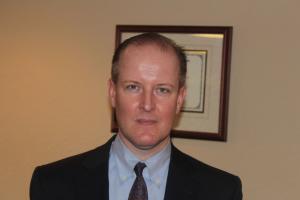Mark Dillman, Florida Employment Law Attorney High Court to decide if taking Sundays off is a reasonable accommodation or an undue hardship. by Chris
High Court to decide if taking Sundays off is a reasonable accommodation or an undue hardship. by Christopher Hazlehurst, J.D.
OCALA, FLORIDA, UNITED STATES, May 10, 2023/EINPresswire.com/ — The United States Supreme Court recently heard oral arguments in a case that could change the landscape of religious rights at work. A decision from the Court expanding religious accommodation could shift the balance in cases involving birth control, gay marriage, LGBTQ health care, and other matters in which the professed religious views of one employee conflict with other legal obligations.
The case of Gerald E. Groff v. Louis DeJoy (Docket No. 22-174, United States Supreme Court) involves a former letter carrier for the U.S. Postal Service. Shortly after Groff joined USPS, the agency signed a lucrative contract with Amazon, which included Sunday package deliveries. Groff told his employer that his religious beliefs prevented him from working on Sunday in order to observe the Sabbath. His employer accommodated him for a time, finding substitute carriers for Sunday shifts where possible and allowing Groff to pick up extra shifts during the week to offset the missed time.
Frequently, however, USPS could not find a coworker to switch shifts with Groff, causing issues in the workplace and consternation among his coworkers. When he still refused to work Sundays, he was disciplined and essentially told to work Sundays or find another job. He chose to resign. Groff subsequently sued USPS under Title VII, alleging religious discrimination and failure to accommodate.
Title VII of the Civil Rights Act of 1964 requires employers to provide employees with “reasonable accommodation” for their religious practices, so long as the accommodation would not cause “undue hardship” to the employer. According to the 1977 Supreme Court ruling in Trans World Airlines, Inc. v. Hardison (432 U.S. 63 (1977)), the standard for demonstrating “undue hardship” in religious accommodation cases is fairly low: An employer need only show the accommodation would cause more than a minimal or “de minimis” burden.
Allowing an employee to miss an entire day of work every week, and forcing co-workers to overcompensate when possible, likely satisfies the de minimis requirement. Groff argues that the standard is too low and does not satisfy Title VII’s plain language, which requires the employer to show an “undue burden.” He seeks to overturn, or at least clarify, Hardison to bring the standard in line with similar language in other arenas. Groff would have the Court define an undue burden as a “significant difficulty or expense,” which is the standard for employers proving undue burden in cases brought under the Americans with Disabilities Act (ADA).
As Mark Dillman, an attorney for the Florida employment law firm James P. Tarquin, P.A., explains, employers bear the burden of proving undue hardship under the ADA. “At its core,” says Dillman, “an “undue hardship” means significant difficulty or expense to the employer in providing the needed accommodation.” Dillman explains that courts generally consider several factors in determining whether a proposed accommodation would cause undue hardship to the employer, including the cost to the employer, the administrative burden, whether the accommodation would unduly disrupt the ability of other employees to perform their jobs, and the financial resources and size of the employer.
At oral argument, many of the justices appeared to search for a “common ground,” looking for a way to uphold Hardison while reflecting the practical realities of religious accommodation claims. Several of the conservative justices noted that the undue hardship inquiry is heavily dependent on the context and that no one truly believed that only a minimal or nominal burden would suffice; in practice, something closer to “substantial cost” is typically already required.
On the other hand, the justices appeared skeptical of the idea of fully importing the ADA’s more exacting standard. Justice Roberts noted that the ADA addresses a “discrete category of individuals,” while Title VII has a much broader scope. Justice Barrett similarly expressed concerns about how the higher ADA standard would affect employers given the much larger number of possible Title VII accommodation requests. Many of the justices focused on other practical issues, such as when a burden on coworkers–rather than a financial burden on the employer–rises to the level of undue hardship.
Attorney Dillman points out that Title VII requires employers to engage in good faith efforts to resolve a conflict between an employee’s religious beliefs and an employment requirement. “If the employer does not make any effort to accommodate the employee’s religious beliefs or the accommodation proposed by the employer does not eliminate the employee’s religious conflict,” Dillman says, “then the employer must demonstrate that it was unable to reasonably accommodate the employee’s religious needs without “undue hardship.”
According to Dillman, courts have generally upheld religious accommodations such as the one proposed in Groff v. DeJoy, including allowing employees to miss work on their Sabbath, on a religious holiday, or to attend a religious ceremony; not scheduling employees to work on their Sabbath; allowing employees to wear a beard because of their religious beliefs; and allowing employees to wear religious-based clothing in the workplace.
Although it’s never wise to predict results from analyzing oral argument, the justices appeared to be searching for a way to avoid overturning Hardison and treating every religious accommodation request with the same legal power as a request for disability accommodation. Regardless, it’s very possible that a majority will expand Title VII’s religious protections for employees.
Legal commentators and civil rights advocates worry about what expanding protection for religious accommodations might mean in other contexts. Can a court clerk refuse to issue marriage licenses to same-sex couples? Can a pharmacist refuse to fill a birth control prescription? Can a manager refuse to hire LGBTQ employees?
The current conservative majority on the Court has certainly favored religious protections in several recent cases, such as ruling in favor of a public high school football coach who alleged he was fired for leading prayers after games. Any change to the status quo will likely lead to a flurry of litigation testing the new boundaries of the undue burden test.
Mark Dillman
James P. Tarquin, P.A.
+1 352-401-7671
email us here
Visit us on social media:
Facebook
![]()

